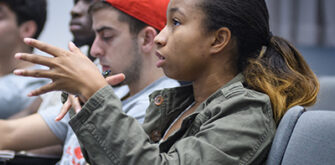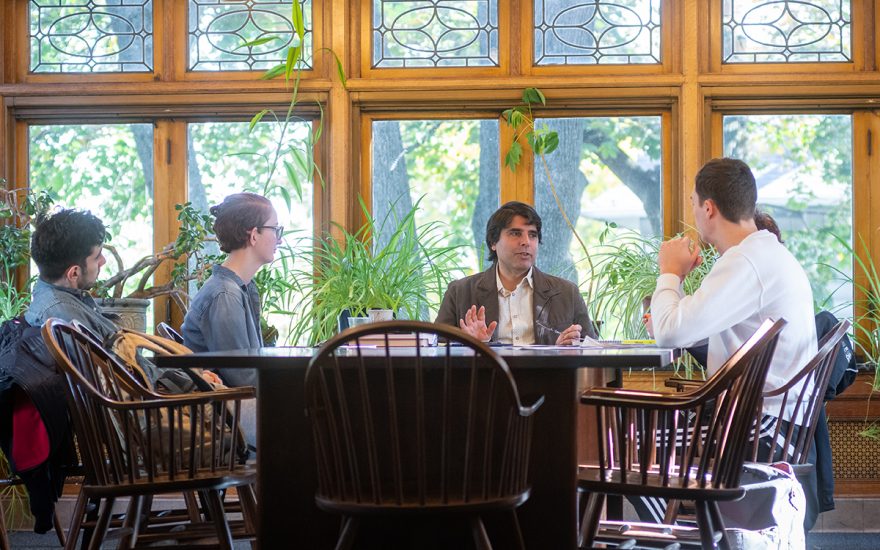At Clark, your first course in philosophy is likely to be a First-Year Intensive (FYI) seminar or a course in ethics, such as Personal Values, Social and Political Ethics, or Environmental Ethics. Your last course will be a dedicated capstone seminar, reserved for graduating senior philosophy majors, devoted to collaborative, individual research projects around a central theme.
In between, you’ll take two courses in the history of philosophy, one in formal logic, one in epistemology, one in metaphysics, one in ethics and social philosophy, and advanced electives on single philosophers, movements, or topics. Few of your classes will have more than 24 students, and many will be limited to 12.
You’ll also be required to complete either a second major, a minor, or a concentration.
Qualified students can join the Clark chapter of Phi Sigma Tau, the national philosophy honor society.


